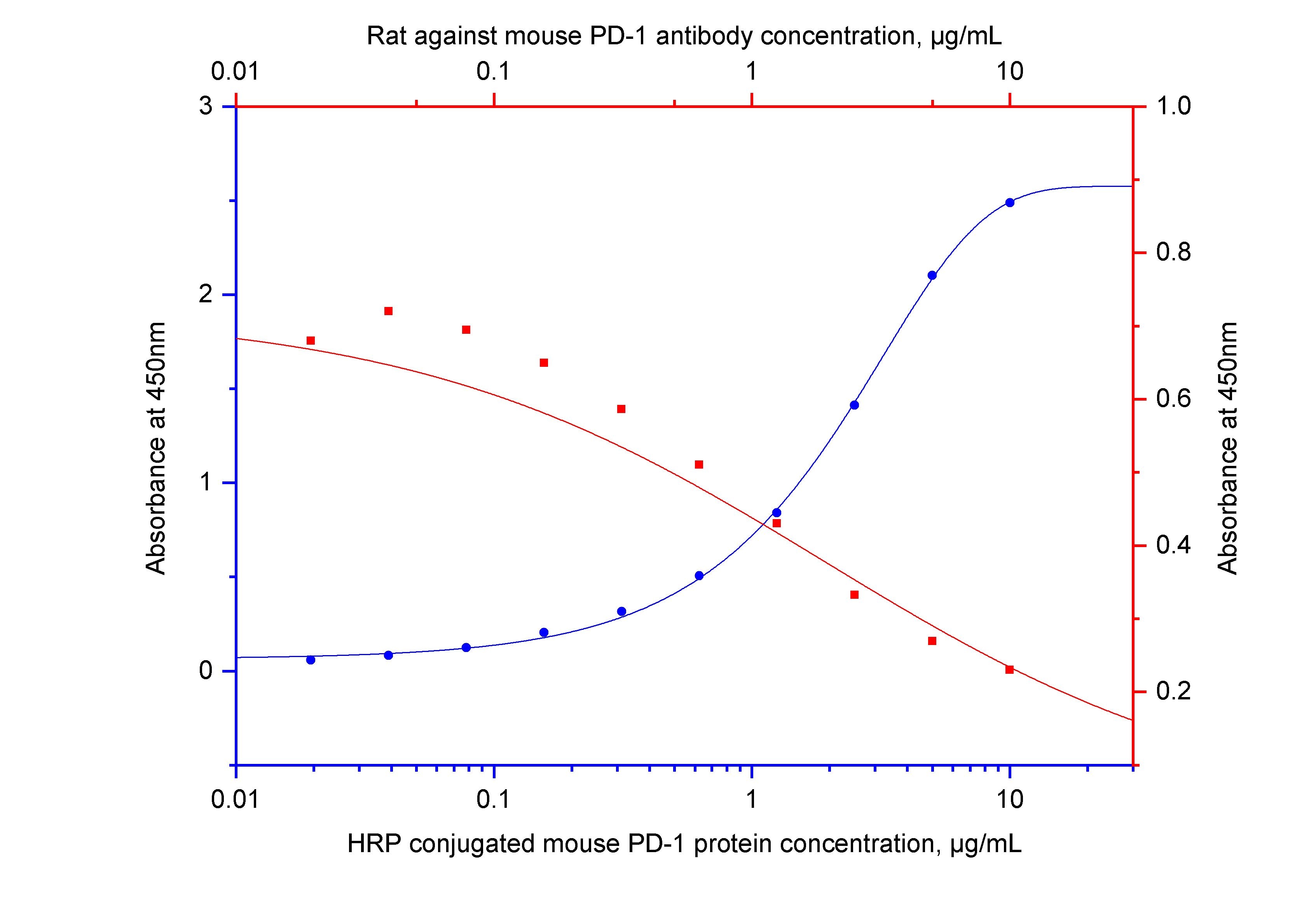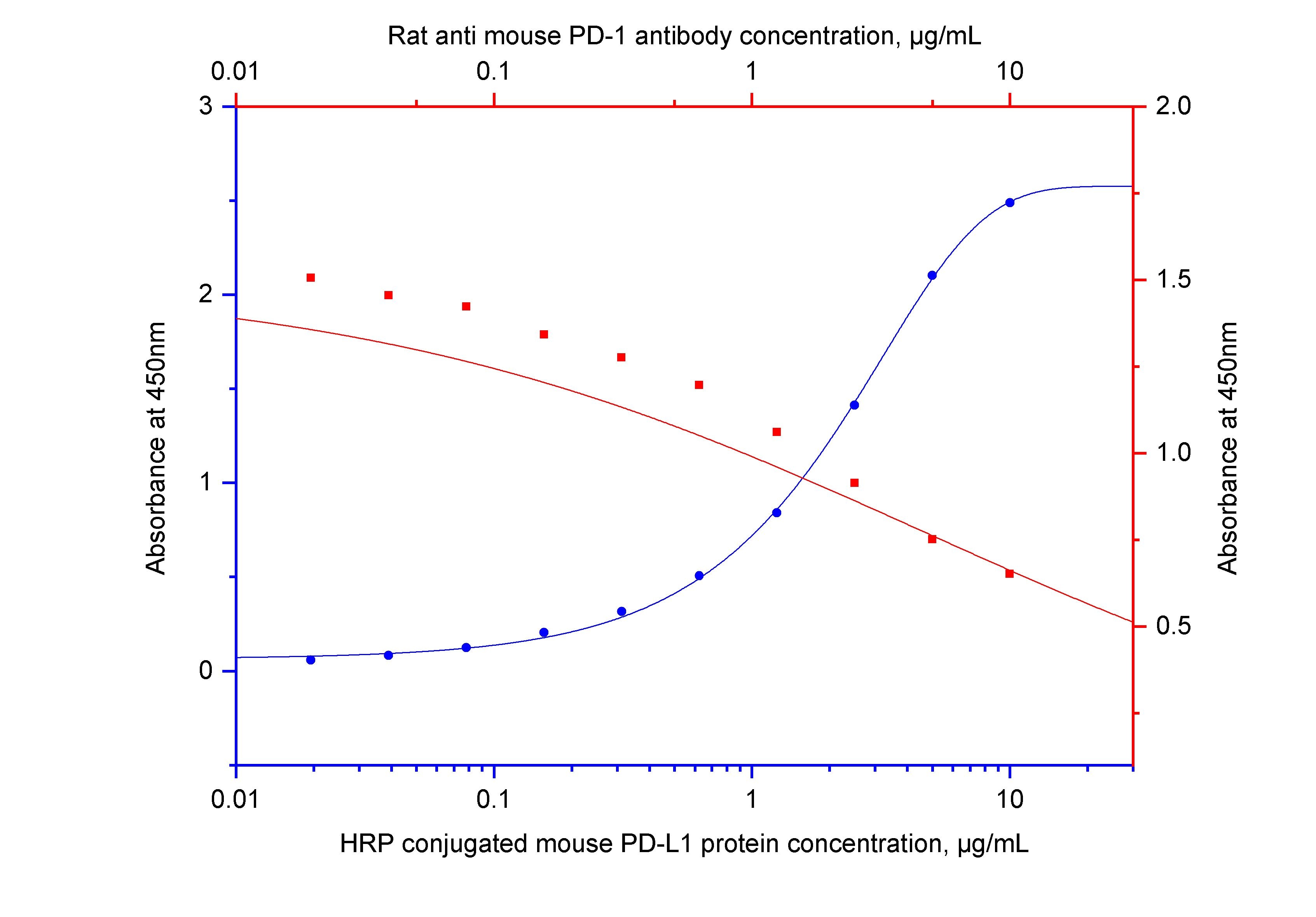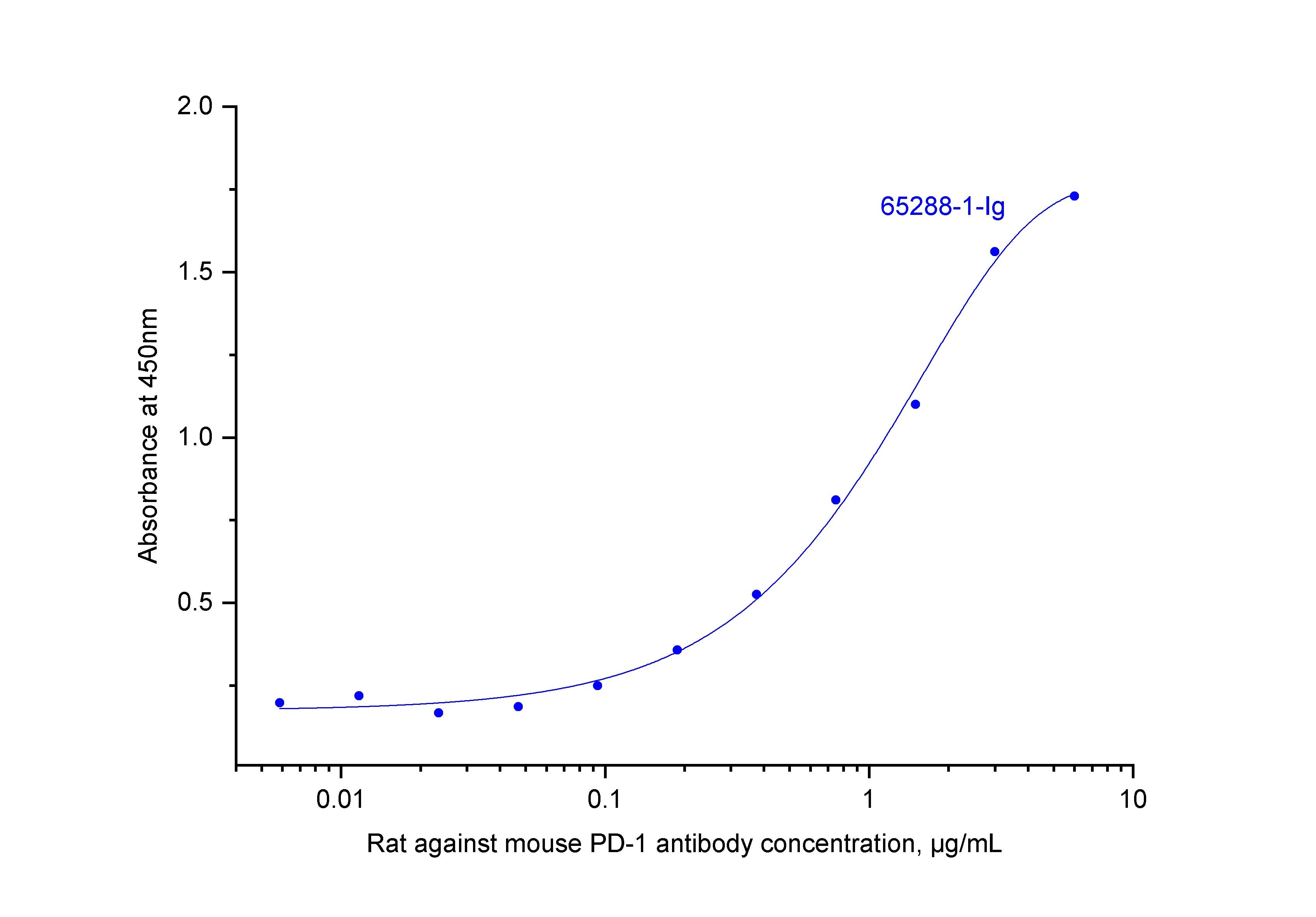PD-1/CD279 Monoklonaler Antikörper
PD-1/CD279 Monoklonal Antikörper für Neutralization, ELISA
Wirt / Isotyp
Ratte / IgG2a, kappa
Getestete Reaktivität
Maus
Anwendung
Neutralization, ELISA
Konjugation
Unkonjugiert
CloneNo.
RMP1-14
Kat-Nr. : 65288-1-Ig
Synonyme
Geprüfte Anwendungen
| Erfolgreiche Neutralization | |
| Erfolgreiche Detektion in ELISA |
Empfohlene Verdünnung
| Anwendung | Verdünnung |
|---|---|
| NEUTRALIZATION | NEUTRALIZATION : 1:10-1:100 |
| Enzyme-linked Immunosorbent Assay (ELISA) | ELISA : |
| This reagent has been tested for flow cytometric analysis. It is recommended that this reagent should be titrated in each testing system to obtain optimal results. | |
| Sample-dependent, check data in validation data gallery | |
Produktinformation
65288-1-Ig bindet in Neutralization, ELISA PD-1/CD279 und zeigt Reaktivität mit Maus
| Getestete Reaktivität | Maus |
| Wirt / Isotyp | Ratte / IgG2a, kappa |
| Klonalität | Monoklonal |
| Typ | Antikörper |
| Immunogen | Maus-PD-1-transfizierte BHK-Zellen |
| Vollständiger Name | programmed cell death 1 |
| GenBank-Zugangsnummer | BC119179 |
| Gene symbol | PD-1 |
| Gene ID (NCBI) | 18566 |
| Konjugation | Unkonjugiert |
| Form | Liquid |
| Reinigungsmethode | Protein-G-Reinigung |
| Lagerungspuffer | PBS with 0.09% sodium azide |
| Lagerungsbedingungen | Store at 2-8°C. Stable for one year after shipment. |
Hintergrundinformationen
Programmed cell death 1 (PD-1, also known as CD279) is an immunoinhibitory receptor that belongs to the CD28/CTLA-4 subfamily of the Ig superfamily. It is a 288 amino acid (aa) type I transmembrane protein composed of one Ig superfamily domain, a stalk, a transmembrane domain, and an intracellular domain containing an immunoreceptor tyrosine-based inhibitory motif (ITIM) as well as an immunoreceptor tyrosine-based switch motif (ITSM) (PMID: 18173375). PD-1 is expressed during thymic development and is induced in a variety of hematopoietic cells in the periphery by antigen receptor signaling and cytokines (PMID: 20636820). Engagement of PD-1 by its ligands PD-L1 or PD-L2 transduces a signal that inhibits T-cell proliferation, cytokine production, and cytolytic function (PMID: 19426218). It is critical for the regulation of T cell function during immunity and tolerance. Blockade of PD-1 can overcome immune resistance and also has been shown to have antitumor activity (PMID: 22658127; 23169436). RMP1-14 is a monoclonal antibody that targets the murine PD-1 protein and can be used in mouse models to block the reaction between PD-1 and PD-L1/PD-L2 (PMID: 14764726; 31832706).




